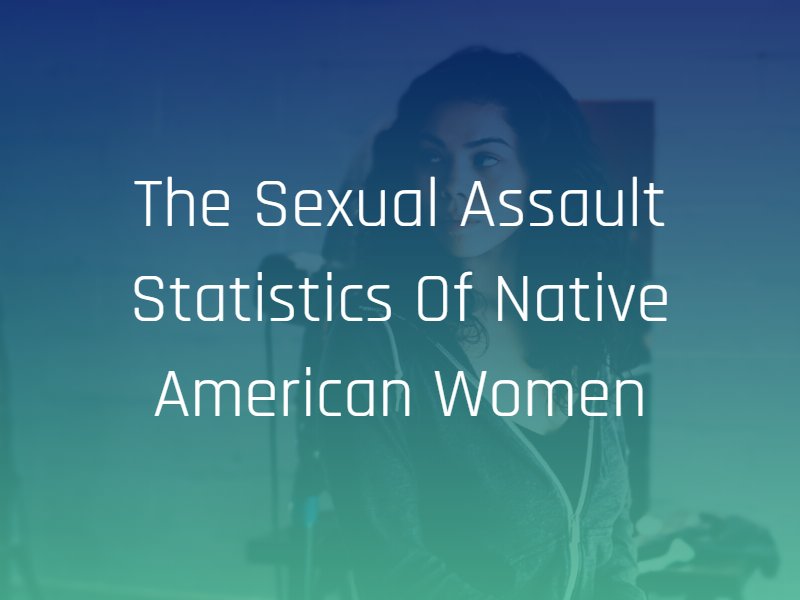Indigenous women face the highest rates of sexual assault in the United States — in fact, 56.1% of Native American women have experienced sexual violence in their lifetimes, and Native Americans are twice as likely to experience sexual assault compared to other races.
Lack of resources and equitable funding, decades of discriminatory laws that fail to protect Native American women from sexual violence on tribal lands, and racial discrimination all contribute to these astronomically high rates of sexual assault.
Statistics on Violence Against Native Women
According to the National Congress of American Indians, Indigenous women experience significantly higher rates of sexual violence than non-Indigenous people. The vast majority of the perpetrators of this violence are non-Native people who take advantage of tribal jurisdiction laws to commit violent acts against Native women.
The organization provides the following statistics on sexual violence against Indigenous women.
- 3% of Indigenous women have experienced violence in their lifetimes.
- 5% of Indigenous women have experienced physical intimate partner violence.
- Indigenous women face murder rates 10 times higher than the national average in certain areas of the country.
- 96% of Indigenous survivors have experienced sexual violence at the hands of a non-Indigenous perpetrator.
- Indigenous women are 2.5 times more likely to lack access to crucial services for sexual violence, including medical treatment.
The Violence Against Women Act and Tribal Jurisdiction
Federal law considers tribal lands as domestic dependent nations within the United States. As such, tribal nations are sovereign and have jurisdiction over their lands and citizens — but not over non-tribal members who reside on these lands. For decades, United States laws restricted the ability of Indigenous nations to protect Indigenous women from violence against non-tribal members who have committed the vast majority of sexual assaults against Indigenous women.
The laws changed in 2013 with the reauthorization of the Violence Against Women Act (VAWA), which granted tribal nations jurisdiction over non-tribal members who commit acts of domestic violence. However, this reauthorization did not extend to Alaska Native villages, where Alaska Native women account for over 50% of sexual assaults in the entire state of Alaska, despite comprising only 20% of the state’s population.
VAWA’s reauthorization took full effect in 2015 and the bill was reauthorized again in 2019, but the work has not ceased. Indigenous political organizations and activists are currently pushing for a more inclusive VAWA to protect Indigenous women across the United States.
In addition to VAWA, politicians are pushing for the passage of Savanna’s Act to reform law enforcement protocols regarding missing and murdered Indigenous women. This law is named for Savanna LaFontaine-Greywind, a 22-year-old Spirit Lake Dakota and Turtle Mountain Chippewa mother who was murdered by two of her neighbors in 2017.
Savanna’s Act aims to increase coordination between federal, state, and tribal law enforcement when investigating the deaths and disappearances of Native American women, which often go unsolved.
What to Do If You Experience Sexual Violence
If you are an Indigenous woman who has experienced sexual assault, you are not alone and help is available. Contact your local sexual violence resource center, visit a hospital or clinic to receive a forensic medical exam, or call the National Sexual Assault Hotline at 1-800-656-4673 to find resources near you.
If you live in a rural area and cannot access these resources, contact a sexual assault attorney who offers nationwide support for victims of sexual violence as soon as possible. Your sexual assault attorney will help walk you through your legal options and help you take the next steps toward justice.

